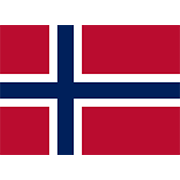Fiscal subject related
Sales and returns can be on the same receipt if the cash register system can separate them and give the required information. The receipt must have the word 'Salgskvittering' (sales receipt) at the top and may also have the word 'Returkvittering' (return receipt). If a return happens at the same time as a new sale, it is usual to combine sales and returns on one receipt (Salgskvittering or Returkvittering).
The number and amount of sales receipts must be stated in X and Z reports, according to Section 2-8-2(l) of the Cash Register System Regulation. The same applies to the number and amount of returns, according to Section 2-8-2(p) of the same regulation. This includes both the returns on sales receipts and the returns on separate receipts. Returns cannot be on the sales receipt unless the cash register system can meet the specification requirements for the X and Z reports.
Other news from Norway
Norway: Businesses Must Create Daily Z Reports, Printing Can Follow Later
 Norway
Author: Ivana Picajkić
Norway
Author: Ivana Picajkić
Under the new bookkeeping rules, businesses using cash register systems must prepare a daily cash settlement. Read more
Subscribe to get access to the latest news, documents, webinars and educations.
Already subscriber? Login


New document was uploaded: EV-chargers from the Fiscalization Perspective in Norway
 Norway
Author: Ivana Picajkić
Norway
Author: Ivana Picajkić
The purpose of this document is to explain rules regarding the treatment of EV chargers for electric vehicles in Norway in relation to fiscalization. The document will explain whether they are subjects of fiscalization or not, whether there are some special rules and regulations, or if there are some special rules Read more
Subscribe to get access to the latest news, documents, webinars and educations.
Already subscriber? Login


Norway: Stored Receipts Must Be Closed Before Day-End
 Norway
Author: Ivana Picajkić
Norway
Author: Ivana Picajkić
The Norwegian Tax Administration mandates that businesses finalize all sales before issuing a daily Z report. Read more
Subscribe to get access to the latest news, documents, webinars and educations.
Already subscriber? Login


Reminder: Norway’s Strict Rules on Invoices
 Norway
Author: Ivana Picajkić
Norway
Author: Ivana Picajkić
The Norwegian Tax Administration has reiterated that invoice numbers must not be altered and may only be generated through certified invoicing software or pre-printed forms bearing the seller’s enterprise details. Read more
Subscribe to get access to the latest news, documents, webinars and educations.
Already subscriber? Login


Norway: Bergen seeks permission for Sunday shopping
 Norway
Author: Ivana Picajkić
Norway
Author: Ivana Picajkić
Bergen and Oslo are seeking national approval to allow Sunday shopping, aiming to meet tourist demand while challenging Norway’s tradition of keeping shops closed on Sundays Bergen’s city council has voted to apply for national recognition as a “typical tourist destination.” If approved, this would allow shops in certain parts of the city to open on Sundays. Oslo has made the sa... Read more



Norwegian Tax Administration Clarifies: Bookkeepers Cannot Develop Their Own POS Systems
 Norway
Author: Ivana Picajkić
Norway
Author: Ivana Picajkić
The Norwegian Tax Administration has clarified that businesses subject to bookkeeping obligations cannot issue product declarations for POS systems they develop themselves, as only independent suppliers are authorized to do so under the Cash Register Systems Act. Let's find out what elese do you need to know! Read more
Subscribe to get access to the latest news, documents, webinars and educations.
Already subscriber? Login


Norway: The New Altinn Portal – Simpler, Safer, more Modern
 Norway
Author: Ivana Picajkić
Norway
Author: Ivana Picajkić
Norway is rebuilding the Altinn portal with a modern platform that offers stronger security, simpler design, mobile-friendly access, and improved integration options for professional systems. The rollout will be gradual, starting this autumn with a new inbox and system access features, while ensuring continuity with the existing portal during the transition. Altinn has served citizens and business... Read more


